A Foreign Affair (1948)
Directed by: Billy Wilder
Written by: Billy Wilder, Charles Brackett, David Shaw, Richard L. Breen, Robert Harari
Starring: Jean Arthur, John Lund, Marlene Dietrich, Millard Mitchell
USA
AVAILABLE ON BLU-RAY: 22ND JUNE, from EUREKA ENTERTAINMENT
RUNNING TIME: 116 min
REVIEWED BY: Dr Lenera
In 1947, a United States congressional committee, which includes prim Phoebe Frost of Iowa, arrives in post-World War II Berlin to visit the American troops stationed there. Phoebe hears rumors that cabaret torch singer Erika von Schlütow, suspected of being the former mistress of either Hermann Göring or Joseph Goebbels, is being protected by an unidentified American officer. She enlists Captain John Pringle, another Iowan, to assist in her investigation, unaware that he is Erika’s current boyfriend. In order to distract Phoebe, John tries to woo her….
Made just between his sole and very odd musical The Emperor Waltz and one of his masterpieces, the bitter Hollywood satire Sunset Boulevard, A Foreign Affair was one Billy Wilder film I’d never even heard of. I’ve probably seen about three quarters of the work of the helmer of such masterpieces as Double Indemnity and The Apartment, and pretty much enjoyed them all, even if I feel that he fell below his own high standard quite a few times in the second half of his career, something which could be possibly blamed just as much or even more on screenwriter I.A.L. Diamond, except that Diamond did write some cracking stuff for him too. A Foreign Affair can in a way be considered as a companion piece to his much later One, Two, Three, which was similarly set in Berlin, a city which Wilder spent much of his youth in and loved, though it was a Berlin in somewhat better shape in that film. The Cold War satire, also featuring silly Americans in the city, was quite a broad affair and, despite some undoubtedly terrific moments, suffered from much repetition of gags and is a film I’d call weaker Wilder, even if weaker Wilder is still good. A Foreign Affair though is very much prime Wilder; sharp, funny and a bit daring, yet still compassionate. Containing Wilder’s favourite plot device of a con, the caustic romantic comedy drama’s basic plot was old hat even when it was made; wholesome woman and sexy woman pursuing the same man; man pretends to fall for wholesome woman and then really does. But the post-war backdrop is deadly serious, compelling, and unusual, and is often shot in a film noir-like fashion, while Wilder and his usual co-writer of the time Charles Brackett, plus Richard L. Breen, provide some major [and occasionally off-colour for some] laughs, plus as much overt sexuality as one could get away with in 1948.
While serving with the US Army in Germany during World War II, Wilder discovered that both his mother and grandmother had died at Auschwitz. He made a documentary called Death Mills as part of a programme to “de-nazifi” the country, but realised that he could get his messages across much better if he incorporated them into an entertaining fictional feature. Erich Pommer, who was responsible for the rebuilding of the German film industry, placed what was left of the facilities at Universum Film AG at Wilder’s disposal, while Wilder was able to shoot much real footage of the city, mostly in the Soviet sector. While researching the existing situation, he interviewed many of the American military personnel stationed in Berlin, as well as its residents, including a woman who said that she was grateful the Allies had come to fix the gas because she could now commit suicide. Marlene Dietrich was Wilder’s first choice to play Erika, though she refused to play a woman with a Nazi past until Wilder swayed her with the promise that her three songs in the picture would be written by her old friend and frequent composer Friedrich Hollaender, though some claim that he showed her screen tests of other actresses he claimed to be considering for the role. Wilder persuaded Jean Arthur to come out of retirement to play Phoebe. Throughout filming, she felt the director was favouring Dietrich and made her suspicions public. Wilder later said, “I have one dame who’s afraid to look at herself in a mirror and another who won’t stop looking!” In filming the nightclub scenes, Paramount introduced a new silent method for shooting dance sequences: flashing lights were used on the set to denote rhythm so that dialogue could be recorded without the obstruction of music. A Foreign Affair didn’t please some members of congress, nor the military brass, and Paramount barely promoted it, though it got nominated for some Oscars.
Our heroine is a prim and proper as the writers could make her without quite turning her into a caricature. She’s first seen locking various personal items inside other items, probably symbolism for having feelings locked away, as various congresspeople fly over the ruins of the bombed out Berlin. “You got quite a sight, come, looks like chicken innards at frying time” says one of the guys to Phoebe who, unlike most women, seems to have trouble doing more than one thing at a time. She replies, “considering the amount of taxpayers money used I don’t expect it to look like a lace Valentine”. We spend much time looking at the ruins, from above and on the ground, Phoebe and us getting a guided tour, though it’s obvious that the stars never left the studio, and the use of the melody of the song ‘ Isn’t It Romantic’ is jars. Pheobe is distracted and appalled by all the fraternising between soldiers and girls. Couples sit together, a high-ranking looking officer approaches a house with flowers, we even see a woman pushing a pushchair along. This is intended to be more amusing than anything else, and it’s possible to become annoyed at the almost total avoidance of the darker side of all this in reality that we know about – but then Wilder and company were already treading on thin ice with this picture, and this soon leads to its first very funny scene, when two GIs try to pick Phoebe up and she lets them think she’s German for quite some time while they slag off congress. Of course she’s there to try to stop the corruption of these good ole boys. John expresses delight in her giving him a birthday cake from a girl back home, but when she’s gone he promptly sells it in exchange for something else. He then returns to his woman Erika, who spits toothpaste at him after which he yanks her hair back, followed by the exchange, “You kill me once more and I’ll knock your teeth out”. “You’ll bruise your lips”. “Why don’t I choke you a little, break you in too”? We get the impression that this is a rough physical relationship.
Pheobe targets Erika, and poor John has to join her in staking out Erika’s house, waiting for some American boyfriend to show up. Billy Wilder said that John Lund “was the guy you got after you wrote the part for Cary Grant and Grant wasn’t available”. He’s no Grant, but he has charm and nicely plays scenes like the one described above, and another when he and Phoebe watch film of Erika at a gathering of Nazis, even kissing Hitler’s hand, where his expressions show his shock without overdoing it. By contrast, a de-glamourised Jean Arthur, so good in Shane and a trilogy of Frank Capra pictures, rather overdoes the facial movements to express her constant surprise, exasperation and even disgust, though her typically sparkling screen personality still shines through. She gets a wonderful moment when, after kissing John, she returns to the hotel where she’s staying, totally in a daze. We’ve all been there, though I doubt many of us have gone into the wrong room. Of course it all largely boils down to a love triangle, though with some extra complications, like a Nazi ex-boyfriend of Erika’s, leading to a fairly suspenseful climax. Erika’s fate is disappointing seeing as the script doesn’t really criticise her opportunistic character – in fact it likes all three of its main characters despite their considerable flaws – and it even gives her a speech reminding us of things from the side of all these poor German civilians, but of course the script had to stick to its official message, and at least Erika’s last scene contains a great joke. In general the resolution doesn’t quite work; it seems too pat, too ‘nice’. But then this was a film that, included, for example, a gag where an American officer interviews a father with a delinquent son, a little Hitler Youth punk who chalks swastika graffiti wherever he goes. The father wants the boy punished, to which the Army officer says, “what do you want me to do, throw him in a gas chamber?”.
The occupation of Germany has to be depicted as doing good, so the film only ever so slightly criticises the American soldiers much for contributing to the black market and messing around with German women; Col. Plummer tells us that it’s understandable for GIs to behave like this seeing as they’ve been at war for a long time. In terms of what we see in the film, it’s hard not to argue with that. A fear that the Nazi past may survive is omnipresent, and we could have done with more German characters, but to be fair Wilder and co. may very well have got into trouble if they’d had more than one sympathetic German. At least we do get a sense of the immense problem of repairing the ravages of war, even if Wilder seems to enjoy depicting the wild times everyone has at The Lorelei nightclub more than anything else. Erika is allowed to not just say some words from the German side but sing three songs which all relate to the film, the last of which, the very catchy ‘The Ruins of Berlin’, is hopeful, about a Berlin rising from the ashes, and is not shown to be responded well to by most of the Americans and some Soviets present; a slightly brave moment. ‘Black Market’ she barely even sings, but she doesn’t need to as she could possibly be talking about sex for sell much like in a song from her much earlier Morocco. ‘Love Illusions’ is also catchy though lyrically perhaps the least interesting. A 47 year old Dietrich, wearing outfits by Hitchcock’s costume designer Edith Head, looks fabulous – she barely changed in appearance for about 15 years – and she still most definitely has that unique presence. She’s best when she taunts Phoebe; Arthur’s obvious insecurity adds to the delicious edge to these scenes. Out of the rest of the cast only Millard Mitchell as the wily but honest – even with his troops – Col. Rufus J. Plummer really registers.
The film loves showing how this uptight young woman is “loosened up”, to the point where she eventually gets totally plastered and sings her campaign song in The Lorelei. Lund and Arthur don’t really possess much chemistry together, but their first love scene has quite a sexual charge to it nonetheless; they’re in an office and she keeps on moving back from him as he advances towards her, pulling out drawers from a filing cabinet to keep him at bay and he just pushing them back in, eventually trapping her in a corner with two of the draws. Some may find him to be a bit too sexually aggressive, especially as he’s behaving like this to protect his ‘actual’ girlfriend so it’s not as if his actions at this point are even genuine, but this scene gets a neat variant later on. Wilder and Brackett showcase their usual skill in making jokes pay off, or be repeated or varied. We also even see some neat transitional touches, like the ‘target’ that Plummer draws onto a foggy window, to show Phoebe that Pringle is in danger, remaining in the dissolve to the nightclub, to float right above John’s heart. Wilder is never regarded as a major stylist, but actually he can usually be counted, at least in his black and white films, to give us some nice visual moments, like Phoebe crying and her face being entirely in the dark, which always add to the moment at hand, and especially when Charles Lang was his cinematographer. A Foreign Affair manages to be both cynical yet charming, funny yet serious, and shows what a unique filmmaker Wilder was; so many of the films he made would have seemed horribly misjudged if they’d been directed by anybody else.
Rating: 









Probably based on Kino Lorber’s Region ‘A’ Blu-ray release but given a new encode, A Foreign Affair looks – inconsistent – though with far more good than bad. Around four fifths of it is stunning in appearance, with superb contrast and detail, and considerable sharpness. The remainder looks rather soft, slightly out of focus, or with some scratches in the final third, it almost looking like this material came from another print? I don’t think we can blame Eureka for this or indeed Kino Lorber; if the source was slightly damaged, then there’s not a huge amount which could be done. As I said, the majority looks fine so it’s not a huge problem.
Kino Lorber gave us an audio commentary from Joseph McBride, a Wilder scholar who interviewed and spent some time with him, and some Wilder trailers. Eureka ditch the trailers except for the one of the film in question, and add some new features. The commentary is quite something, one of the most comprehensive I’ve heard in a while. We learn much about the film, Wilder’s early life in Germany [he may or may not have been a gigolo], the Wilder/Brackett relationship, Jean Arthur [the reason why she left Hollywood is pretty shocking though typical of the studio system of the time], a really touching story of how Wilder, for very sad personal reasons, wanted to make Schindler’s List but thought Spielberg’s film was the best ever made, and McBride agreeing with me about the ending. This track, which has no gaps whatsoever, really is excellent and in invaluable companion to the film.
From Berlin to Hollywood: Wilder and Dietrich’s Foreign Affair has the always welcome Kat Ellinger discuss Dietrich’s early life in Germany and in particular the hotbed of decadence that was Weimar Republic Berlin, her friendship with Wilder, and her move to Hollywood. A Foreign Affair itself is only talked about a little towards the end, and I’d have liked to have heard more of her views on the film, but the piece will probably make you want to see some more Dietrich films, which is always a good thing; her collaborations with director Josef von Sternberg are absolutely fascinating. The two radio adaptations follow the same script, which shortens the film’s and adds a few jokes. The presenter introducing the first one in a German accent may annoy a few sensitive modern viewers, while the second one has the expected cigarette advertisements. Eureka’s inclusion of these on some of their discs is nonetheless commendable, they’re a fun record of how things used to be. Dietrich and Lund reprise their roles in both; Rosalind Russell and Lucille Ball play Arthur’s part. And finally we have a short portion of Volker Schlondorff’s lengthy interview Billy Wilder Speaks, concerning this particular film. Wilder’s funny when he admits that he used the ‘Isn’t It Romantic’ tune simply because Paramount didn’t need to pay any money for it.
Discover one of the less popular works of one of the great old Hollywood master with a good selection of contextual extras to boot. Highly Recommended.
SPECIAL FEATURES
*1080p presentation on Blu-ray
*Uncompressed LPCM 2.0 audio
*Audio commentary by film historian Joseph McBride
*From Berlin to Hollywood: Wilder and Dietrich’s Foreign Affair: New video piece on the film by critic Kat Ellinger [22 mins]
*Radio Adaptations:
– “Screen Director’s Playhouse Episode 9” featuring Marlene Dietrich, Rosalind Russell, and John Lund [59 mins]
– “Screen Director’s Playhouse Episode 92” featuring Marlene Dietrich, John Lund, and Lucille Ball (6o mins)
*Archival interview with Billy Wilder [10 mins]
*Theatrical trailer
*A collector’s booklet featuring new writing by film historian Alexandra Heller-Nicholas; a new essay by critic Richard Combs; and more!

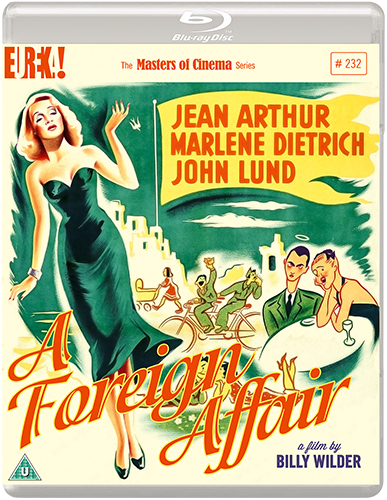
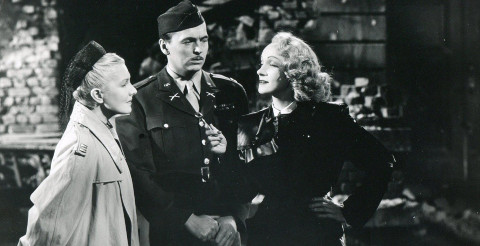
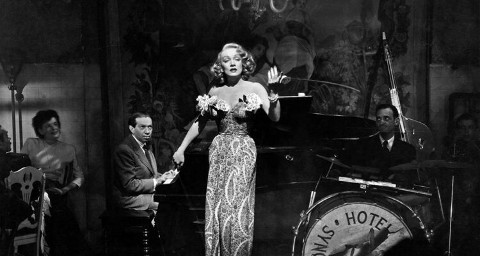

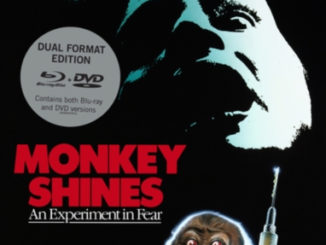
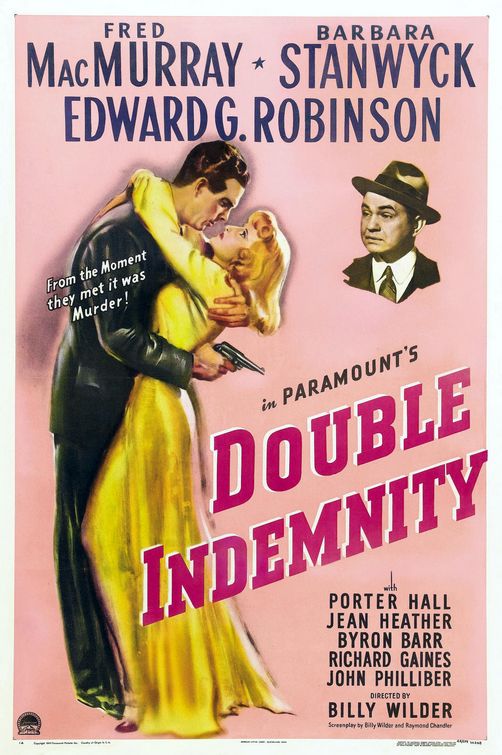
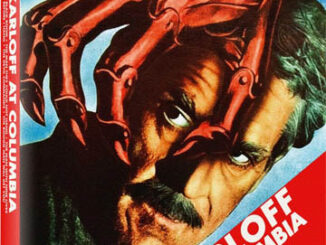
Be the first to comment